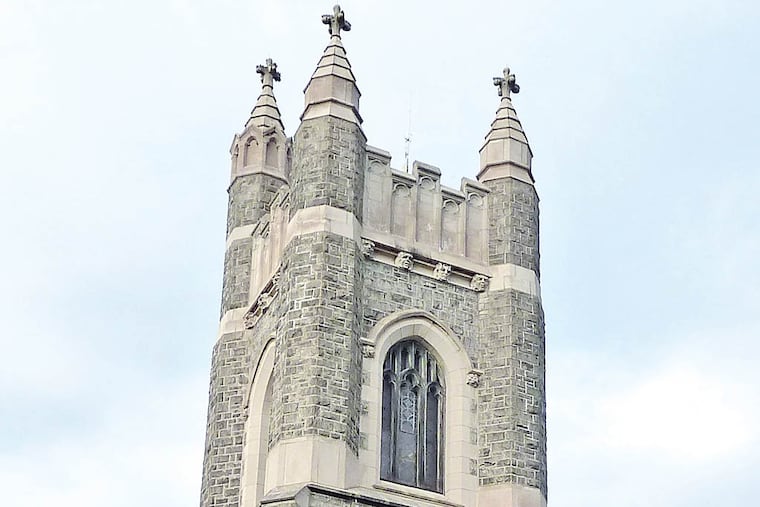Where We Worship: Calvary Center for Culture and Community
In West Philly, one church houses four faiths ... and so much more.

ON A CORNER in West Philly, assorted nonprofits are pushing the envelope on what it means to share a space.
The Calvary Center for Culture and Community, on 48th Street near Baltimore Avenue, combines the performing arts, community services and religion (four of them, actually) in a single, three-story building.
Rich Kirk, the president of the center's board, says Calvary has come a long way from its humble origins as a Methodist church on the brink of closing.
Who we are: The center was formed in 2000 and has housed a wide variety of tenants in its 14 years, Kirk said. Its current occupants include four congregations: the West Philadelphia Mennonite Fellowship, Grace Chapel Pentecostal Church, Kol Tzedek Synagogue and the Calvary United Methodist Church.
He likens the space-sharing situation to a "time-share": Each congregation has its own set period for worship in the main sanctuary.
Other community groups also rent space, including offices located on the center's upper floors.
Where we worship: Housing all of this diversity is Calvary United Methodist's original Victorian church, a wedge-shaped, limestone structure built in 1906.
The church's massive, three-story stained glass windows have always been a point of pride, said Kirk - and, occasionally, a point of contention.
How we got here: In the early '90s, the Methodist congregation had fallen on hard times: Attendance began to dip, and the century-old building had started to crumble, with structural weaknesses threatening its roof and walls.
Finally, in 1994, the congregation put the church up for sale. But no buyers bit. "They listed it for a price less than what you'd pay for the house next door today," Kirk said.
So the Methodists made the tough decision to sell off the just the stained glass elements, including a beautiful dome above the sanctuary. That's when Kirk and other concerned neighbors got involved.
They halted the sales, began some aggressive fundraising and restored the church to safe, working condition.
To keep their passion project thriving, the Calvary Center incorporated as a nonprofit and began to lease space inside the church from the Methodists. The usage fees went back into the church, a formula that continues today.
"We wanted it to stay a holy space, but we also wanted it to be a place where the community could come and gather, which was something we didn't exactly have at the time," Kirk said.
"Plus, we felt it had the potential to be an anchor point for the surrounding blocks."
Halo effect: That potential has come to be realized, he said.
The center has served as a nexus for that section of Baltimore Avenue, and its board has watched the neighborhood reap the benefits, with restaurants and other businesses popping up, and a whole new flock of residents - including churchgoers and center members - moving in.
"We had this amazing side benefit of the center developing the community in ways that were beyond just what was going on inside the building," Kirk said.
All God's children: Kirk credits the center's success to the diversity of faiths within Calvary. "It's a wide variety of theology, certainly, but it's all tolerated," he said.
"It creates this feeling of openness and inclusion that really surprises people. They feel welcome here, that there's no judgment, because everyone has something different to offer."
And his co-tenants: Besides the four congregations, Calvary's tenants run the gamut.
The churchgoers share their space with a day-care center, narcotics- and alcoholics-anonymous groups and a jujitsu school.
The center also has a soft spot for the performing arts and is the home of Crossroads Music - which regularly hosts esoteric acts from across the globe, such as Mongolian throat singers - and the Curio Theatre Company.
Moving ahead: Spacewise, the center is operating at capacity, but Kirk says there's always room to grow its community.
Of particular interest is adding Islamic studies into Calvary's portfolio of faiths. To that end, Kirk and his fellow board members are in discussions with the Council on American-Islamic Relations, which has an office in Center City.
"We've brought together groups that normally wouldn't be under the same roof, which fits the style of our neighborhood: freewheeling and diverse," said Kirk.
"And we're doing everything we can to keep that spirit alive."